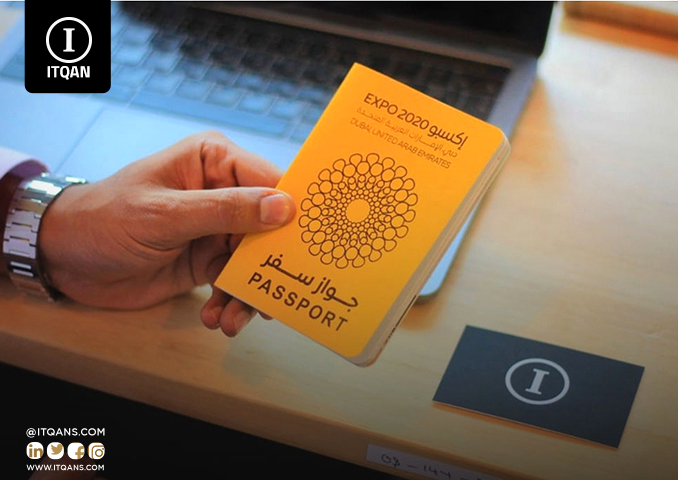Procedures for establishing a company in the Emirates. The United Arab Emirates is considered one of the world’s leading destinations for establishing companies thanks to its stable economic environment, advanced infrastructure, and government policies that encourage investment. Business opportunities in the UAE are diverse and include various sectors such as trade, financial services, technology, and tourism, making it an ideal destination for entrepreneurs and investors.
Establishing a company in the UAE requires following a set of legal and administrative procedures aimed at regulating the business and ensuring compliance with local laws. These procedures vary depending on the type of company and the region in which it will be established, whether it is a free zone, within the local market, or as an external company operating from the Emirates.
In this article, we will review the basic steps for establishing a company in the UAE, starting with choosing the appropriate type of company, through registration procedures, to the costs and fees associated with this process. Our goal is to provide you with a comprehensive guide that helps you understand the process in all its details, making it easier for you to make the right decisions to achieve your business success in the UAE.

جدول المحتوى
ToggleChoose the company type
When making the decision to establish a company in the UAE , choosing the type of company is one of the essential steps. The types of companies that can be established in the Emirates vary based on business activity and geographical location, and can be classified into three main types:
Free companies
Free companies are companies that are established in free zones in the Emirates. These companies have several advantages that make them an attractive option for investors, including:
- Full foreign ownership: Foreign investors can own 100% of the company without the need for a local partner.
- Tax exemptions: Free zones provide multiple tax exemptions, including taxes on personal and corporate income.
- Ease of transferring profits: Free companies can transfer profits and capital freely without restrictions.
- Advanced infrastructure: Free zones provide modern infrastructure and multiple support services that make it easier for companies to conduct their business efficiently.
Local companies
Local companies are companies that are registered and operate in the local market of the Emirates outside the free zones. These companies have advantages that make them a suitable choice for some business activities, such as:
- Access to the local market: Local companies can deal directly with the local market and customers within the Emirates.
- Multiple license types: The UAE provides a variety of commercial licenses that meet the needs of different activities.
- Partnerships with locals: Some businesses require a local partner who owns a percentage of the company, which enhances local cooperation.
External companies
Offshore companies are companies that are established in the UAE but conduct their business outside the country. The UAE provides a flexible environment for establishing this type of company, and its advantages include:
- Tax breaks: Offshore corporations enjoy tax breaks similar to those available to free companies.
- Ease of establishment: The procedures for establishing offshore companies are characterized by simplicity and speed.
- Asset Protection: The UAE provides a safe legal environment to protect the assets of offshore companies.
In conclusion of this section, it can be said that the choice of company type depends on the investor’s goals and business needs. It is necessary to carefully study the available options and consult experts to ensure the most appropriate decision is made.
Registration procedures for establishing a company in the Emirates
The company registration process in the UAE is one of the basic steps that every entrepreneur or investor must follow to ensure the establishment of a legal and licensed company. The registration procedure includes several important steps that must be completed carefully to ensure that the process runs smoothly and successfully. Below we review the main steps of the registration procedures:
Choose a trade name
The first step in the registration process is choosing the company’s trade name. The trade name must comply with local laws and regulations, which means it should be unique and not used by any other company registered in the UAE. In addition, the name must not contain any prohibited words or violate the cultural and social values of the country. After choosing the appropriate name, an application must be submitted to the Department of Economic Development (DED) in the relevant emirate to obtain initial approval of the trade name.
Submit the required documents
After obtaining initial approval of the trade name, a set of necessary documents must be submitted to complete the registration process. These documents usually include:
- A copy of the passport for all partners and shareholders.
- A copy of the residence permit (if the applicant resides in the UAE).
- The company’s articles of incorporation (must include details about the business activity, capital, and distribution of shares among partners).
- Lease or ownership contract for the company’s headquarters.
- Completed registration application form.
It is important to ensure that all documents submitted are correct and up to date to avoid any delays in the registration process.
Obtaining approvals
After submitting the required documents, they are reviewed by the competent authorities to obtain the necessary approvals. Some business activities may require additional approvals from relevant regulatory authorities, such as the Ministry of Health or the Ministry of Environment, depending on the type of activity the company intends to undertake. After obtaining all approvals, a commercial registration certificate is issued proving that the company is officially and legally registered in the UAE.
These are essential steps in the company registration process in the UAE and must be completed carefully to ensure successful company registration and compliance with all local laws and regulations.

Costs and fees for establishing a company in the UAE
When setting up a company in the UAE , costs and fees are key factors to consider. These costs vary depending on the type of company and where the registration will take place. In this section we will review the main fees that investors should be aware of:
register fees
Registration fees vary based on the type of company and the location in which the company is to be registered. In free zones, fees may be slightly higher compared to local companies, but they come with benefits such as tax exemption and full ownership by foreigners. Depending on the chosen free zone and company requirements.
License fees
After registering the company, you must obtain the necessary licenses to conduct business activity. License fees vary based on the type of activity the company will undertake and the region in which it will operate. For example, industrial activities may require higher fees compared to commercial or service activities. License fees usually range between AED 5,000 and AED 15,000 per year.
Additional costs
Besides the main fees, there are some additional costs you may need to consider. These costs include:
- Office rental costs: Companies in the UAE are required to rent a physical office as part of their registration requirements. Rental costs vary depending on location and office size.
- Document translation and notarization costs: The registration process requires the submission of translated and certified documents, which adds additional costs that may reach several thousand dirhams.
- Consulting services fees: New companies may need consulting services to assist them in the registration and establishment process. This fee varies based on the complexity of the service provided.
- Insurance fees: Some businesses may be required to have insurance, such as employee health or accident insurance.
It is important for investors to have a clear financial plan that takes into account all expected costs and fees to ensure a successful and sustainable establishment of their company in the UAE.
Our company’s role in establishing a company in the Emirates
Establishing a company in the UAE is an important strategic step that requires a deep understanding of local procedures and laws. By following the steps in this article, new businesses can ensure their successful registration and avoid any legal or financial hurdles they may face.
Investors should choose the right type of company, whether freehold, domestic or offshore, based on their business objectives and market requirements. In addition, they must adhere to all required registration procedures, starting from choosing a trade name, submitting the necessary documents, and obtaining the necessary approvals from the relevant authorities.
It is also important that investors have a clear understanding of the costs and fees associated with setting up a company, including registration fees, licenses and additional costs. Investing in good financial planning can help avoid unpleasant surprises and provide resources for future company growth.
In general, it can be said that the UAE provides an attractive and stable business environment, with supportive government policies and an encouraging legal environment for investors from all over the world. By following the right steps and good planning, investors can achieve success and benefit from the promising opportunities offered by the UAE market.
Frequently asked questions about establishing a company in the UAE
What are the basic steps to establish a company in the UAE?
The basic steps include: choosing the type of business activity, determining the type of company, obtaining initial approvals, preparing the required documents, submitting a registration application, paying the required fees, and obtaining a commercial license.
What types of companies can be established in the UAE?
Types include: limited liability companies (LLC), public and private joint-stock companies, sole proprietorships, foreign branches, and companies in free zones.
What are the documents required to establish a company in the UAE?
Documents include: a copy of the passport, a copy of the Emirates ID card (if the investor is a resident), the lease contract, the company’s articles of incorporation, the approval of the competent authorities for commercial activities, and a copy of a previous commercial license if available.
Does a foreign investor need a local partner to establish a company in the UAE?
In free zones, foreign investors can own 100% of the company. As for the internal emirates, the foreign investor may need a local partner who owns 51% of the company, except in some specific activities that allow full foreign ownership.
What is the cost of establishing a company in the UAE?
Costs vary based on company type, business type, and location. Costs include registration fees, licensing fees, lease costs, and sometimes legal advice costs. It is best to verify the specific costs through the competent authorities.
How long does the process of establishing a company in the UAE take?
The process of establishing a company in the UAE usually takes two to four weeks, depending on the speed of submission of documents and completion of procedures.
What are the free zones in the Emirates and how can you benefit from them?
Includes free zones in the UAE such as Jebel Ali, Dubai South, and Dubai Internet City. These zones provide benefits such as full foreign ownership, tax exemptions, and customs facilities.

















